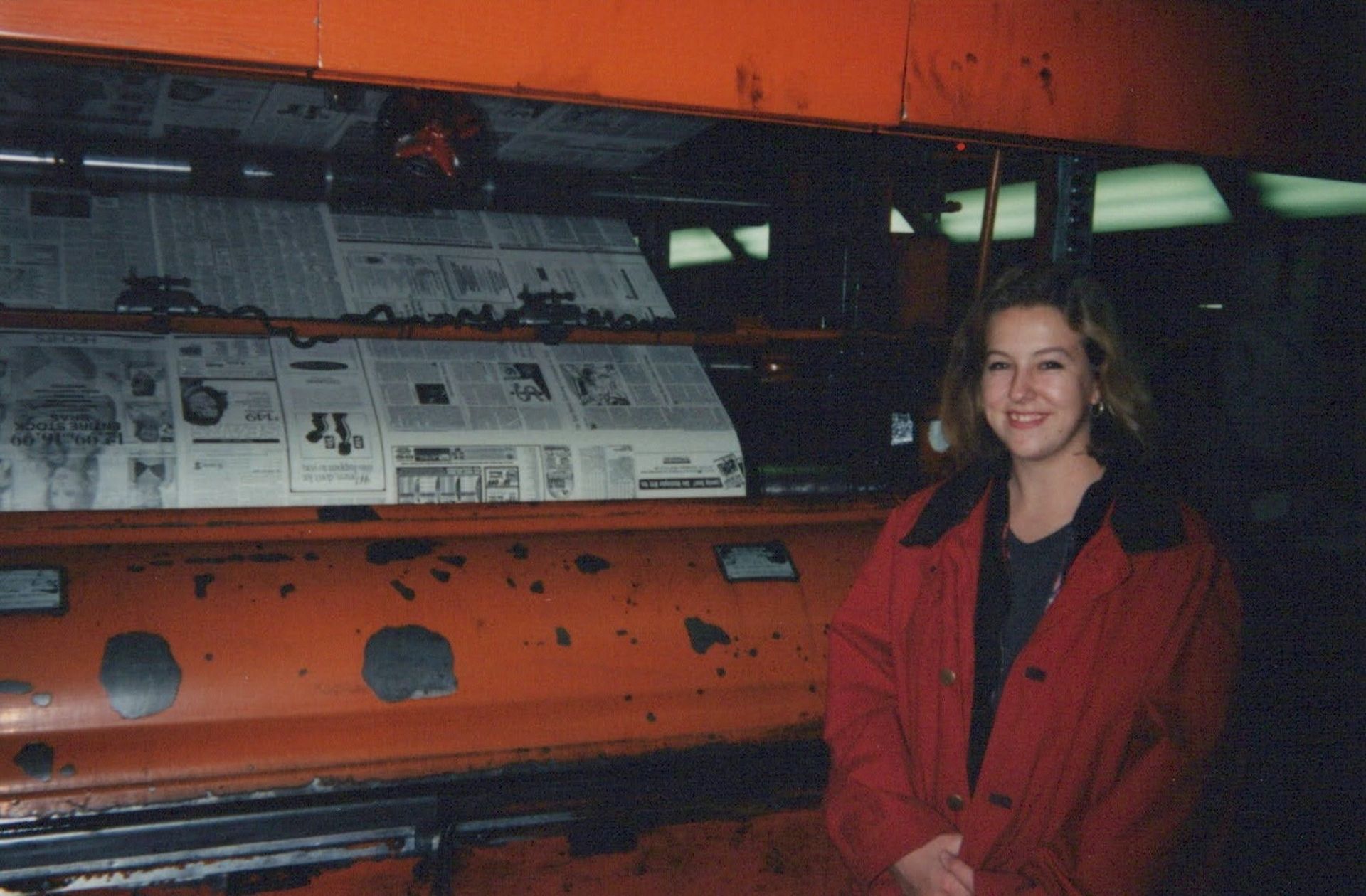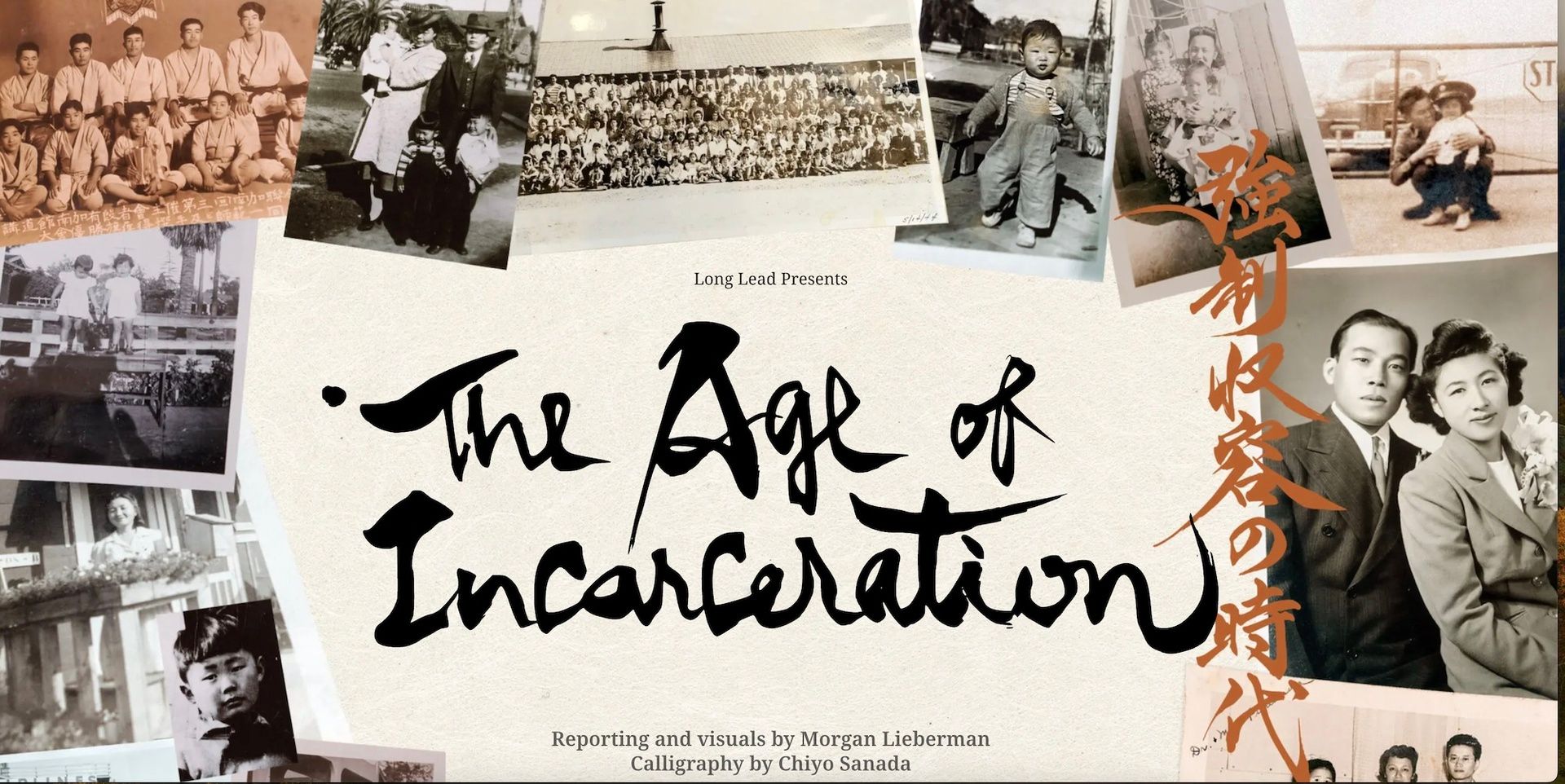- The College Journalism Newsletter
- Posts
- What I learned at my summer internship
What I learned at my summer internship
I tell you mine; now let's ask students theirs!

Me, circa 1996, standing next to a Washington Post printing press.
When I interned at my hometown newspaper in the summer of 1996, I wrote two good leads — if I do say so myself — in my first week. I will never forget the thrill of having my editor read the first, chuckle, and tell me, “You’re going to fit in well here.”
That’s why I want you to do something with this newsletter.
Will you please and forward it to (and CC me) one or more of your students who’ve been interning in a newsroom, because I have a question for them:
What did you learn this summer?
I feel like it’s a wide-open query that deserves a thoughtful listen. If we understood a little more about the gap between what we’ve been preaching in class and what is actually expected in a modern newsroom, perhaps we could improve our teaching just the tiniest bit.
Students, you can reply all or send your responses to me at [email protected], if you’re OK with being mentioned. I’ll compile responses for a future newsletter.
Oh, and those two leads? I still know them almost by heart. (I’ve forgotten the names, so pardon my placeholders.)
For a story about two WWII pen pals: “Ruth Baxter and Emily Spencer have been friends for 48 years, but they just met this week.”
For a profile on the shelter workers whose job it was to euthanize animals: “John Smith, Jane Doe and Mike Jones don’t like killing animals. But it’s their job.”
Minus the almost identical structure, not too shabby for a 21-year-old!
I was told in class to write good leads, but I hadn’t made the connection that it wasn’t just good for audiences — it was good for my reputation and put me in a position to get better future assignments. That was one of dozens of lessons I learned that summer.
Now if I could just learn to spell “receipt” without having to look it up, I’ll really be set.
Headlines
The bad news gets worse: According to NPR, half of its stations are affiliated with or licensed to universities. That’s going to have implications for the student journalism experience.
Send this to your opinion editor: 11 tips on being a good columnist from outgoing Washington Post writer Catherine Rampell.
Take a look at the publications nominated for a 2025 Nonprofit News Awards, and consider this gentle reminder from me: Very few of your soon-to-be graduates are going to work at legacy media outlets. How are you adapting your teaching to make sure they’re ready for this scrappy new world?
This Colorado journalism professor who also covers his state’s media makes some good points about why you should do the same.
Several news organizations, including this fangirl favorite Documented, have banded together to form the Immigrant News Coalition, whose goal will be to provide American immigrant communities with accessible news and information. Bookmark that for future jobs and story ideas.
Time for me to bang that influencer/journalism drum! A few items this week:
Dave Jorgenson, aka The Washington Post TikTok guy, aka one of journalism’s social media pioneers, is striking out on his own.
Two Nieman fellows offer concrete ideas for how legacy media can adopt the best habits of social media creators.
The Video Consortium, Project C and Fordham University’s Department of Communication and Media Studies have launched what they say is a first-of-its-kind survey “examining independent creators who produce video to inform and engage the public.”
The pro files

Screenshot
A photo essay and story about nine of the last survivors of the WWII imprisonment of Japanese Americans: The Age of Incarceration (Long Lead)
Data, images and video tell the story of a high-speed train responsible for an astounding number of deaths along its tracks: Killer Train (Miami Herald and WLRN)
Curriculum libraries
There are now five entries in each of my curriculum libraries: lesson plans, assignments and ethics case studies. I’d love your feedback!
This week’s classroom helpers:
Ethics case study: The Coldplay/kiss cam saga was all over the news — but was it news?
Lesson plan: Using someone else’s database to find and pitch stories.
Assignment: Is your campus getting serious about pickleball?
Feedback
Newsletters! Ethics case studies! Lesson plans! Story assignments! Consulting! Training! How do I find the time to do it all? Let’s take a quiz to find out*:
I’m a vampire.
I’m a Highlander.
I’m a mere mortal who loves college journalism and student media, and therefore have unbridled enthusiasm for this work.
Book a free 30-minute consultation with me to see how I can bring energy to your classroom, department or student media organization.
Have a great week and stay cool out there!
*The answer is 3, although that’s exactly what a vampire would want you to think.